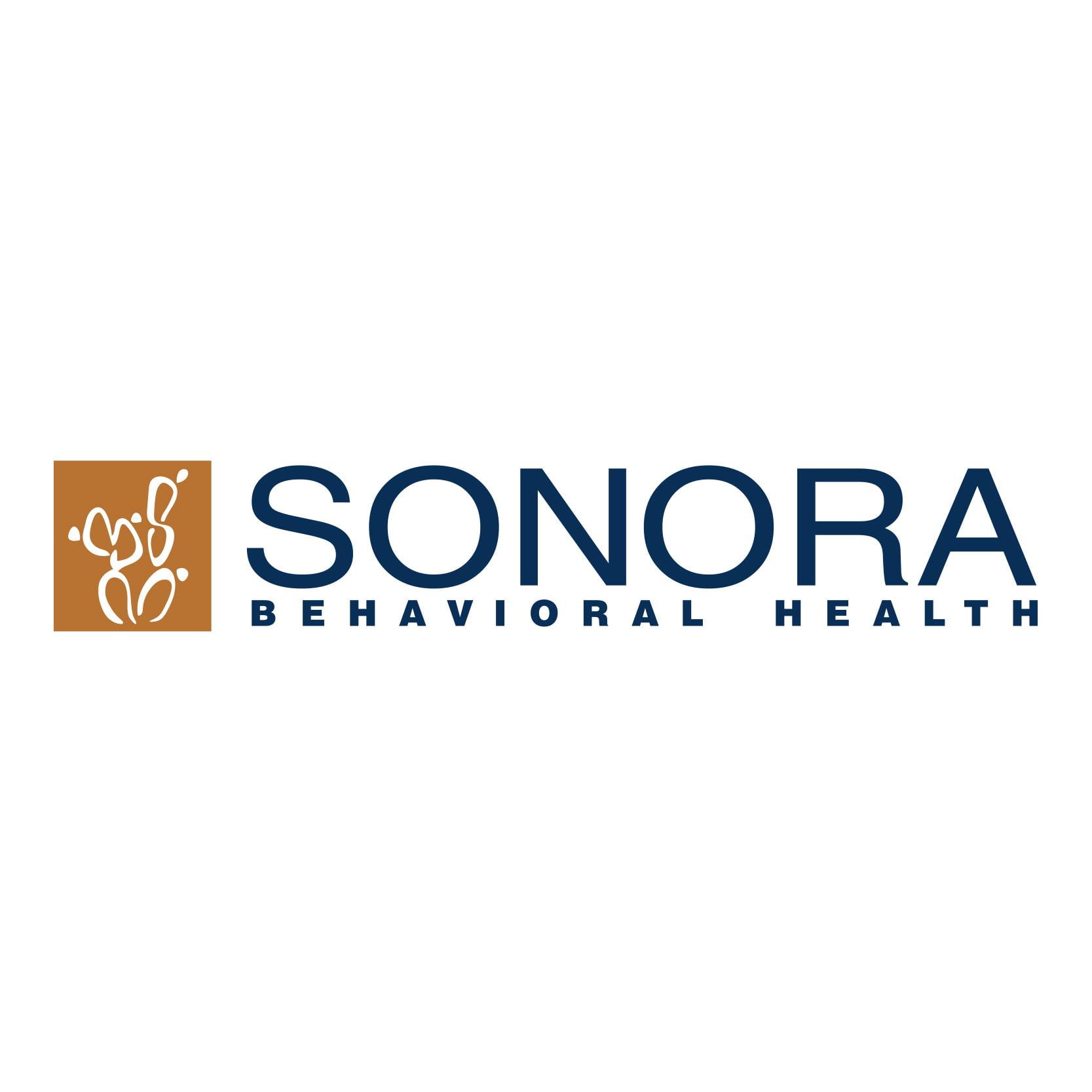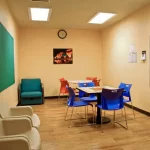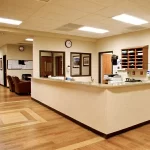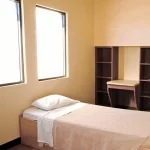Sonora Behavioral Health - TREATMENT REVIEWS
Sonora Behavioral Health is an acute psychiatric hospital catering to individuals wishing to recover from chemical dependencies and other behavioral health issues. The facility started in 1994 and is currently running from a 140-bed facility dealing with children, adolescents, and adults at the same time. Since its establishment, Sonora has expanded its size and broadened the scope of its programs to successfully meet the needs of people in Southern Arizona and Pima County.
Read Also About Burkwood Treatment Center
Offering psychiatric services at various levels of care, Sonora mental health facility provides inpatient, outpatient, and telehealth programs to benefit people from all walks of life. The rehab is always on the verge of providing new services that successfully address all substance use and mental health trends. In doing so, the facility has been recognized by Optum as the Platinum inpatient provider of behavioral health services, and it proudly holds Achievements in Clinical Excellence facility measurement.
An Overview of Treatment Programs at Sonora Health Center
Sonora Behavioral Health Tucson currently provides the following treatment programs to its clients:
ECT Program
The Electroconvulsive Therapy (ECT) Program at Sonora is an option of care for those who suffer from complex mental health issues and require symptomatic management. The therapy can help reduce the intensity of the following types of psychiatric issues:
- Catatonia
- Psychotic depression involving delusions or hallucinations
- Parkinson’s disease
- Schizophrenia
- Severe depression
- Extreme mania
By incorporating ECT into the personalized and comprehensive care plan, Sonora medical center relieves its client’s need to function more healthily. Moreover, this therapy allows them to focus on other aspects of healing and develop skills that they need to manage their underlying psychiatric illness in a better way.
Inpatient Program
Sonora Behavioral Health Hospital is one of the leading providers of inpatient treatment programs for adults and adolescents experiencing a chemical dependency, psychiatric illnesses, and dual diagnoses. It has three dedicated adult unit services open to clients over 18 years. The typical stay at inpatient programs is eight days, following which most clients successfully transition to outpatient care. The goals of the inpatient program at Sonora include the following:
- To provide comprehensive medical assessments and psychiatric care along with diagnostic and treatment services to all in need
- To support patients in regaining their highest level of functioning and maintaining it
- To help patients and their families identify and access significant medical and social resources essential for ongoing care upon discharge.
- To stabilize patients and manage their acute mental illness sensitively and carefully in a safe environment.
Outpatient Program
Sonora Behavioral Health outpatient program offers two levels of care for both adolescents and adults suffering from a chemical dependency or mental health issues:
- A partial hospitalization program involves a high-structured therapeutic schedule with adequate support. The program runs for five hours a day, five days a week. A typical client may participate in it for 10 to 15 days, depending on their progress.
- The intensive outpatient program serves as a step down from the partial hospitalization program, and it provides clients a chance to engage in therapy three hours a day for three days a week. This program typically continues for 28 to 32 days and provides evening and morning slots to accommodate as many people as possible without disturbing their daily schedules.
The staff members at Sonora Behavioral Health determine the right level of care along with its duration for each patient after performing initial and ongoing assessments on them. A common feature of partial hospitalization and intensive outpatient programs is that they allow clients to return to their homes in the evening and tend to their daily obligations after seeking therapy.
Telehealth
Sonora Mental Health Tucson also offers telehealth services to close the gap in access to high-quality behavioral health treatment. These programs involve videoconferencing software and mobile phones to complete virtual assessments, conduct virtual communications, offer virtual visitation, and deliver telehealth therapy to patients and their families.
Telehealth services come with plenty of benefits, such as:
- They allow people with no access to reliable transportation to continue seeking help remotely.
- They provide help and assistance to everyone regardless of how close or far away they are from Sonora Behavioral Health rehab
- They have high flexibility to accommodate people with scheduling conflicts that limit their physical travel to the rehab.
Without physically traveling to the facility, the telehealth program at Sonora Hospital Tucson AZ allows people to build stronger relationships with their care team and work with them toward a happier and healthier life.
Veteran’s Affairs
Sonora Behavioral Health Hospital also runs a specialized program for military members fighting various issues like depression, addiction, and post-traumatic stress disorder. This program is offered through the Department of Veterans Affairs (VA) Community Care Network (CCN) and involves:
- Medication management
- Detoxification
- The individual, group, and family therapy
FAQs
What psychiatric issues does Sonora Behavioral Health treat?
The programs offered at Sonora Behavioral Health cater to children, adolescents, and adults, suffering from anxiety, depression, psychosis, substance use disorders, schizophrenia, dissociative disorder, and more.
What is the criterion for admission at an inpatient Sonora Behavioral Health program for adolescents and kids?
To enroll in a treatment program at Sonora Behavioral Health, all children and teens must fulfill the following criteria:
- They must be between 5 to 17 years of age
- They experience thoughts of hurting themselves or others
- They are unable to recover in outpatient treatment
In general, to receive inpatient care at our hospital in Tucson, Arizona, children, and teenagers must meet the following criteria:
- Ages 5-17
- Unable to complete outpatient treatment
- Thoughts of hurting themselves or others
- Significantly impacted and unable to function
Those above the age of 11 who seek help for substance use disorder must undergo medically-supervised detox at Sonora to access inpatient care.
What is the criterion for inpatient admissions for adults at Sonora Behavioral Health?
The inpatient treatment center for adults at Sonora Behavioral Health Tucson caters to those who are:
- More than 28 years of age
- Thinking of harming themselves or others
- Unable to benefit from outpatient care
- Unable to function on a day-to-day basis due to the psychiatric issue unique to them
- In need of a medically-supervised detox
What is the process of admissions like at Sonora Behavioral Health?
The admissions process at Sonora Behavioral Health is streamlined so that clients can access quality care without wasting time filling out paperwork. The process begins with an initial assessment to determine the best level of care that aligns the most with each client’s unique needs. This assessment usually takes place in person through appointments only. To book an appointment, you must call the rehab and connect with an admissions staff member. The reviews typically take 30 minutes to complete, after which a mental health expert will speak to the clients regarding their recommendations. If they feel like Sonora Behavioral Health may not be the best place for someone, the staff members refer to another, more suitable facility.
Sonora Behavioral Health- Cost/Prices, Center/Clinic/Retreat/Resort Facilities, Inpatient Treatment Program Services
- Title Sonora Behavioral Health
- Treatment Program Addiction / Mental Health / Alcohol Addiction / Drug Addiction / Cocaine Addiction / Heroin Addiction / Marijuana Addiction / Meth Addiction / Anxiety Disorders / Depression / Trauma & PTSD / Dual Diagnosis / Anger / Bipolar / Schizophrenia
- Location United States/ Phoenix
- Languages English
- Accommodation Shared Room
- Environment City
- Age Underage, Young Adult, Adult
- Approach 12 Step, Medical, One to One, Group, On-Site Detox
- Method AA/NA Meetings, Nutritional Coaching, Family Therapy, Psychiatric Therapy, Psychotherapy, Cognitive Behavioral Therapy (CBT), Dialectical Behavior Therapy (DBT), Medical Detox
- Amenities Insurance Accepted
- Gender Women & Men
Sonora Behavioral Health Contact
- E-mail info@sonorabehavioral.com
- Website https://www.sonorabehavioral.com/
- Phone +1 5206399390
- Address 6050 North Corona Rd, Tucson, AZ 85704.

 Sonora Behavioral Health
Sonora Behavioral Health









